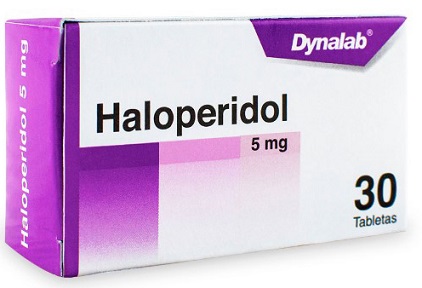Nikhil Prasad Fact checked by:Thailand Medical News Team May 17, 2024 1 year, 8 months, 1 week, 5 days, 15 hours, 50 minutes ago
Medical News: Prion diseases, also known as transmissible spongiform encephalopathies, represent a group of fatal and currently untreatable neurodegenerative disorders that affect both humans and animals. These diseases are caused by prions, which are abnormal, pathogenic agents that induce abnormal folding of specific normal cellular proteins, primarily in the brain. This abnormal folding leads to brain damage and the characteristic symptoms of prion diseases, including dementia, motor dysfunction, and ultimately death.
 Repurposed Drugs Offer New Hope For Treating Lethal Prion Diseases
Common Types of Prion Diseases
Repurposed Drugs Offer New Hope For Treating Lethal Prion Diseases
Common Types of Prion Diseases
In humans, Creutzfeldt-Jakob disease (CJD) is the most well-known prion disease. In animals, bovine spongiform encephalopathy (BSE), commonly known as "mad cow disease," and chronic wasting disease (CWD) affecting deer, elk, and moose are notable examples. The central event in these diseases is the conversion of the normal prion protein (PrPC) into a pathological form (PrPSc), which is toxic to neurons and can propagate by inducing other normal prion proteins to misfold.
The Public Health Impact
The infectious nature of misfolded prion proteins has significant public health implications. Prion diseases can spread through contaminated food, medical procedures involving infected tissues, and even blood transfusions. Thus, understanding and developing treatments for these diseases is crucial for both public health and safety.
New Research Insights from Boston University
In a recent study that is covered in this
Medical News report, researchers from Boston University Chobanian & Avedisian School of Medicine identified ten compounds that can reduce PrPSc levels in infected cells. These compounds showed promise in preventing the toxicity observed when PrPSc was applied to cultured neurons.
Sigma Receptors and Prion Proliferation
Initially, the researchers explored these compounds because they were known to bind to sigma receptors (σ1R and σ2R). These receptors were hypothesized to play a role in prion proliferation. However, using CRISPR gene-editing technology to knock out the genes coding for these receptors in prion-infected Neuro2a (N2a) cells, the researchers discovered that the sigma receptors were not the relevant targets for the anti-prion properties of these drugs.
Experimental Approach and Findings
The research involved exposing prion-infected N2a cells to increasing concentrations of each drug and measuring the levels of PrPSc. Despite the gene knockouts, the drugs continued to decrease PrPSc levels, indicating that the sigma receptors were not responsible for the anti-prion effects. Further tests showed that these drugs did not affect the conversion of PrPC to PrPSc in cell-free reactions, suggesting another protein mediates their effects.
Repurposing Existing Drugs
The most potent compounds identified in the study have
a history of use in humans:
-Rimcazole and haloperidol for neuropsychiatric conditions.
-(+)-Pentazocine for neuropathic pain.
-SA 4503 and ANAVEX2-73 are in clinical trials for ischemic stroke and Alzheimer's disease, respectively.
This finding is particularly exciting because it opens the possibility of repurposing these drugs for treating prion diseases. Given their established safety profiles in humans, these compounds could potentially be fast-tracked for clinical use against prion diseases, which currently lack effective treatments.
Broader Implications of the Study
Prion diseases not only pose a risk to individual health but also have broader implications for public health, especially concerning the safety of the blood supply and the decontamination of surgical tools used in neurosurgery. The identification of these anti-prion properties in human-approved drugs could lead to significant advancements in managing these risks.
Future Directions in Prion Disease Treatment
While the precise mechanisms by which these drugs exert their anti-prion effects remain to be elucidated, this research provides a strong foundation for further investigation. Future studies will likely focus on understanding the exact molecular targets and pathways involved. Additionally, preclinical studies will be essential to confirm the efficacy of these compounds in vivo and to explore their potential for treating various prion diseases.
Conclusion
The discovery of these potent anti-prion compounds marks a significant step forward in the quest to find effective treatments for prion diseases. By leveraging existing drugs with known safety profiles, researchers have identified promising candidates for repurposing, offering hope for future therapeutic options for these currently untreatable conditions. As research progresses, the goal of developing effective treatments for prion diseases becomes increasingly attainable, potentially transforming the landscape of neurodegenerative disease management.
The study findings were published in the peer reviewed journal: ACS Chemical – Neuroscience.
https://pubs.acs.org/doi/10.1021/acschemneuro.4c00095
For the more on Prion Diseases, keep on logging to Thailand
Medical News.
Read Also:
https://www.thailandmedical.news/news/researchers-in-singapore-warn-that-sars-cov-2-can-lead-to-creutzfeldt-jakob-disease-in-some-post-covid-individuals-presenting-with-psychiatric-symptom
https://www.thailandmedical.news/news/warning-sars-cov-2-infections-can-trigger-and-accelerate-progression-of-creutzfeldt-jakob-disease-in-those-with-e200k-mutation
https://www.thailandmedical.news/news/deadly-brain-invader-is-covid-19-unleashing-a-prion-plague-on-humanity
https://www.thailandmedical.news/news/breaking-study-discovers-presence-of-prion-like-domains-in-sars-cov-2-that-affects-binding-affinity-to-ace2-every-variant-has-different-prion-like-dom
